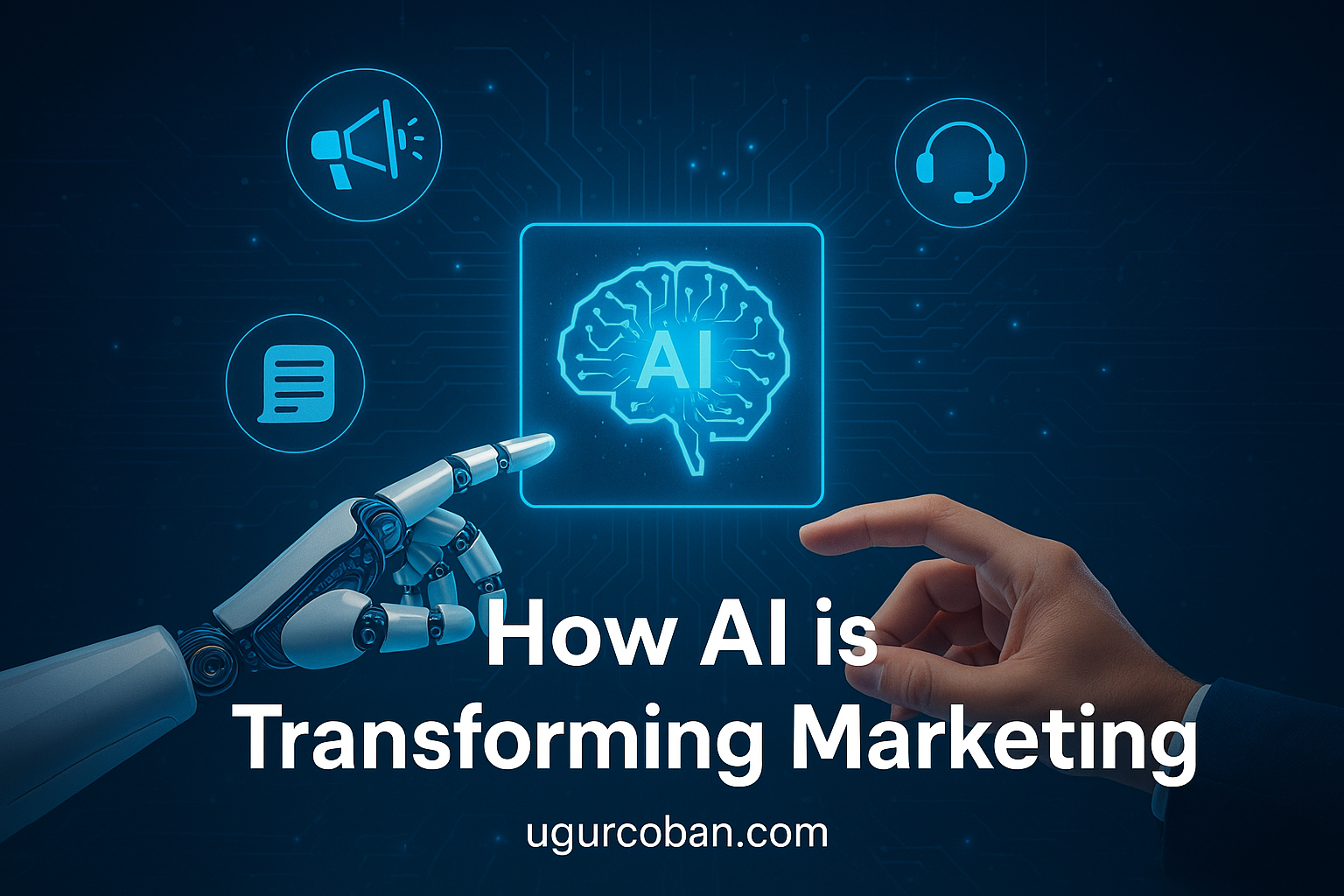Artificial Intelligence (AI) is no longer a futuristic concept; it’s a current-day game changer reshaping the way businesses interact with their audiences. From revolutionizing advertising strategies to generating human-like content and delivering hyper-personalized customer experiences, AI is leading the charge in transforming digital marketing landscapes. In this blog post, we’ll explore how AI is making a significant impact in three critical areas: advertising, content creation, and customer engagement.
The Rise of AI in Advertising
1. Smarter Ad Targeting
AI has significantly improved the precision of ad targeting. Traditional demographic targeting is being replaced by AI-driven insights that analyze behavior, preferences, and user intent. Machine learning algorithms can predict which ads a user is most likely to engage with, based on browsing history, purchase behavior, and real-time interaction data.
Example: Platforms like Google Ads and Meta Ads (Facebook and Instagram) use AI to optimize campaigns in real-time, ensuring that advertisers get the best ROI.
2. Automated Media Buying
Programmatic advertising leverages AI to buy and place ads in real-time. This automated process uses algorithms to determine the best placements, timing, and audience for each ad, reducing manual work and increasing efficiency.
Benefit: Advertisers can scale their campaigns more effectively while minimizing wasted spend.
3. Ad Creatives Optimization
AI tools can generate multiple versions of an ad with variations in text, visuals, and call-to-actions. By A/B testing these variations in real-time, AI identifies which combinations perform best and automatically optimizes future campaigns accordingly.
Example: Tools like Adobe Sensei and Canva’s Magic Design use AI to assist in ad creative development.
AI and the Future of Content Creation
1. AI-Generated Content
Natural Language Processing (NLP) and Generative AI tools like GPT and Jasper have enabled the creation of high-quality written content at scale. Whether it’s blog posts, product descriptions, or social media captions, AI can generate text that matches a brand’s tone and style.
Use Case: E-commerce websites use AI to write product descriptions for thousands of SKUs, saving time and maintaining consistency.
2. Visual and Video Content Creation
AI-powered design tools can create stunning visuals with minimal input. Platforms like Runway, Lumen5, and Pictory enable users to create videos and animations by simply inputting text or uploading basic assets.
Example: Marketers can transform a blog post into a video summary within minutes.
3. Personalization at Scale
AI tailors content based on the user’s behavior, preferences, and interactions. Dynamic content personalization ensures that users receive relevant and timely messages across channels.
Example: Netflix and Spotify use AI to personalize recommendations, creating a unique user experience that boosts engagement and retention.

Enhancing Customer Engagement with AI
1. Conversational AI and Chatbots
Chatbots and virtual assistants powered by AI can handle thousands of customer queries simultaneously, providing instant support and improving customer satisfaction. These bots learn over time, improving their ability to resolve issues and guide users effectively.
Popular Tools: Drift, Intercom, and Zendesk use AI-driven chatbots for real-time communication.
2. Predictive Customer Insights
AI analyzes historical data to predict customer behavior and preferences. This predictive power helps marketers anticipate needs, send targeted offers, and reduce churn.
Example: AI can identify when a customer is likely to cancel a subscription and trigger a retention campaign proactively.
3. Voice and Sentiment Analysis
Voice assistants like Alexa and Siri, combined with sentiment analysis tools, help brands understand how customers feel about their products or services. AI can analyze customer tone, emotion, and choice of words to tailor responses or escalate issues as needed.
Benefit: Enhanced emotional intelligence in customer service.
Ethical Considerations and Challenges
While AI offers immense potential, it also brings ethical and operational challenges. Issues like data privacy, algorithmic bias, and transparency need to be addressed to ensure responsible AI usage.
- Data Privacy: Businesses must comply with GDPR, CCPA, and other data protection regulations.
- Bias in Algorithms: AI systems must be trained on diverse datasets to avoid discriminatory outcomes.
- Transparency: Clear communication about AI’s role in decision-making is essential to build trust with users.
The Future: Human-AI Collaboration
AI isn’t replacing marketers; it’s empowering them. The future lies in human-AI collaboration, where marketers use AI tools to enhance creativity, efficiency, and decision-making. AI handles the data crunching, while humans bring empathy, strategic thinking, and emotional intelligence.
Key Takeaway: The marketers who embrace AI as a partner will be the ones who thrive in the digital era.
Final Thoughts
AI is not just a tool—it’s a transformative force redefining how brands connect with consumers. From smarter ad targeting to personalized content creation and dynamic customer engagement, AI is at the forefront of marketing innovation. As businesses continue to adapt, those who leverage AI effectively will lead the way in delivering compelling, personalized, and meaningful customer experiences.
Stay Ahead: Embrace AI, explore its possibilities, and make it a cornerstone of your digital strategy.